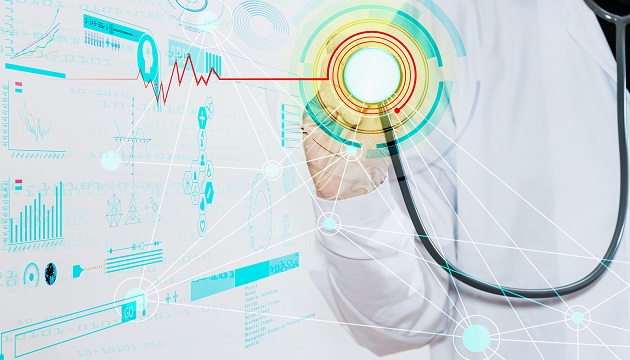Technology has been deployed in various aspects of the medical industry including treatment process outlining, medical imaging, drug development, personalized medicine, and patient monitoring. The role of Technology in healthcare is to approximate human decision-making regarding health and wellness.
The landscape of the healthcare industry has evolved with the progress in disruptive technologies. It is no more a guess-game today, rather transformed into a space of precision and advancements. The peculiarity of artificial intelligence technology has brought new innovations in the medical world. Several AI-enabled algorithms and software are employed to analyse complex medical data and drive accurate conclusions without explicit human intervention.
From identification of disease to its treatment and post-treatment cautions and maintenance, AI is serving all aspects of human health and wellness with innovative approaches and discoveries. The technology has disrupted both conventional methods and markets of healthcare with astonishing technical capabilities.
Today the practitioners are ready to harness its facilities which possess the extreme potential to digitally transform the entire medical field. The technology is exponentially changing human life and is being used at a broad range especially within the realm of disease-diagnosis and epidemic forecasting.
Advancing the possibilities of AI in healthcare, major medical institutions, healthcare centres, and key tech companies are delving deep into refining its potentials by developing various algorithms and software that can be efficiently deployed in the industry.
AI is already considered as the next frontier for healthcare innovation. AI in healthcare is implemented for operating on both structured and unstructured data. Oncology, neurology, cardiology and certain other significant fields of healthcare are experiencing a growing application of AI.
Global Artificial Intelligence in Healthcare Market was valued at US$2.62 billion in 2018 and is expected to hit US$44.24 billion by 2026, growing at a CAGR of 49.8 percent from 2019 to 2026. Machine learning holds a major share of AI and deep learning in the healthcare market. Additionally, the availability of big data and demand to reduce healthcare cost drives the growth of AI in the healthcare industry as a whole.
The roadmap to success of Technology in the medical industry is owing to its successful implementation in enhancing productivity and efficiency to transform care delivery services by workflow optimization; reducing unwarranted variations while expanding precision medicine and improving and speeding up diagnostic accuracy.
The futuristic implications of the technology depict that it will continue to smooth out smaller issues while taking quantum leaps to drive greater transformations in the coming years. Latest Technology is significantly transforming the healthcare industry and is expected to continue doing in the near future.







